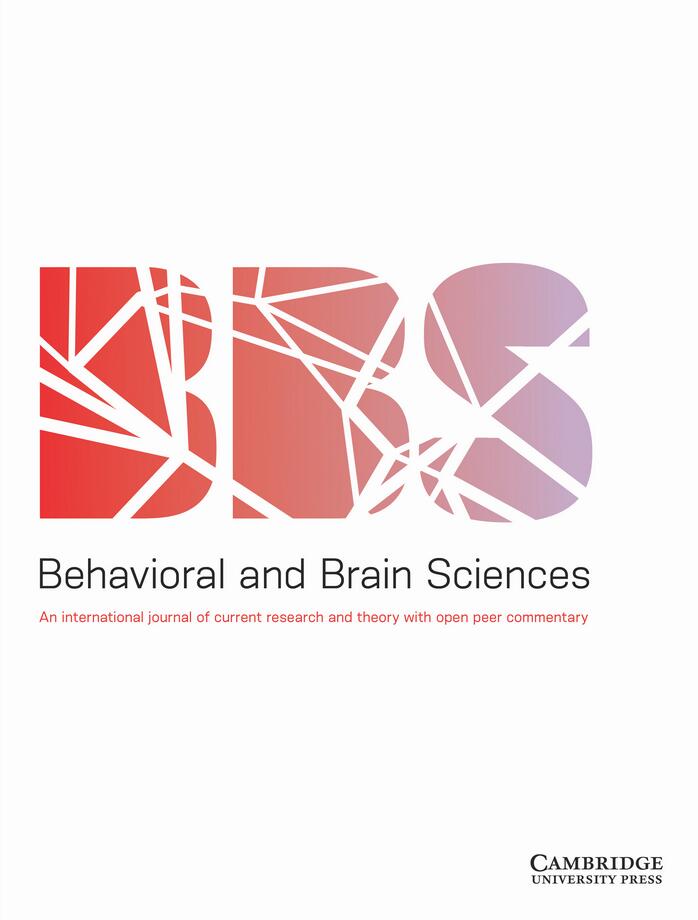婴儿需要所有权概念做什么?节俭占有概念可以充分支持关于分配困境的早期推理。
IF 16.6
1区 心理学
Q1 BEHAVIORAL SCIENCES
引用次数: 0
摘要
Boyer的模型假设,所有权直觉是通过结合资源冲突和合作价值的输入表示来传递的,这对于解决资源获取方面的协调困境是必要的。在这里,我评估了这一主张对早期社会认知的影响,并认为认知上节俭的占有概念可以用于同样的推理目的,从而使所有权的归属变得不必要。本文章由计算机程序翻译,如有差异,请以英文原文为准。
What do infants need an ownership concept for? Frugal possession concepts can adequately support early reasoning about distributive dilemmas.
Boyer's model posits that ownership intuitions are delivered by combining input representations of resource conflict and cooperative value, necessary to solve coordination dilemmas over resource access. Here I evaluate the implications of this claim for early social cognition and argue that cognitively frugal possession concepts can be leveraged to the same inferential end, making the ascription of ownership proper unnecessary.
求助全文
通过发布文献求助,成功后即可免费获取论文全文。
去求助
来源期刊

Behavioral and Brain Sciences
医学-行为科学
CiteScore
1.40
自引率
1.70%
发文量
353
期刊介绍:
Behavioral and Brain Sciences (BBS) is a highly respected journal that employs an innovative approach called Open Peer Commentary. This format allows for the publication of noteworthy and contentious research from various fields including psychology, neuroscience, behavioral biology, and cognitive science. Each article is accompanied by 20-40 commentaries from experts across these disciplines, as well as a response from the author themselves. This unique setup creates a captivating forum for the exchange of ideas, critical analysis, and the integration of research within the behavioral and brain sciences, spanning topics from molecular neurobiology and artificial intelligence to the philosophy of the mind.
 求助内容:
求助内容: 应助结果提醒方式:
应助结果提醒方式:


